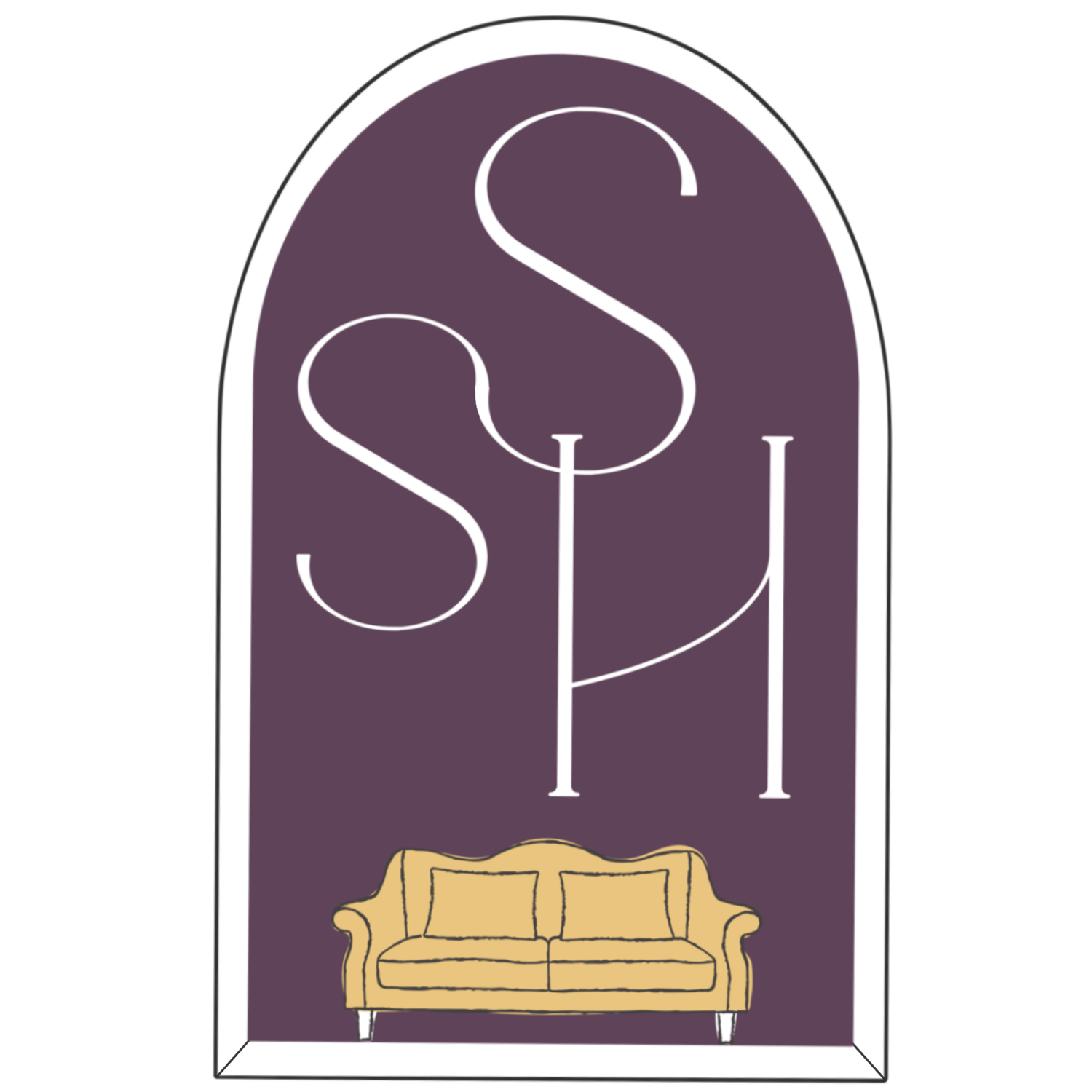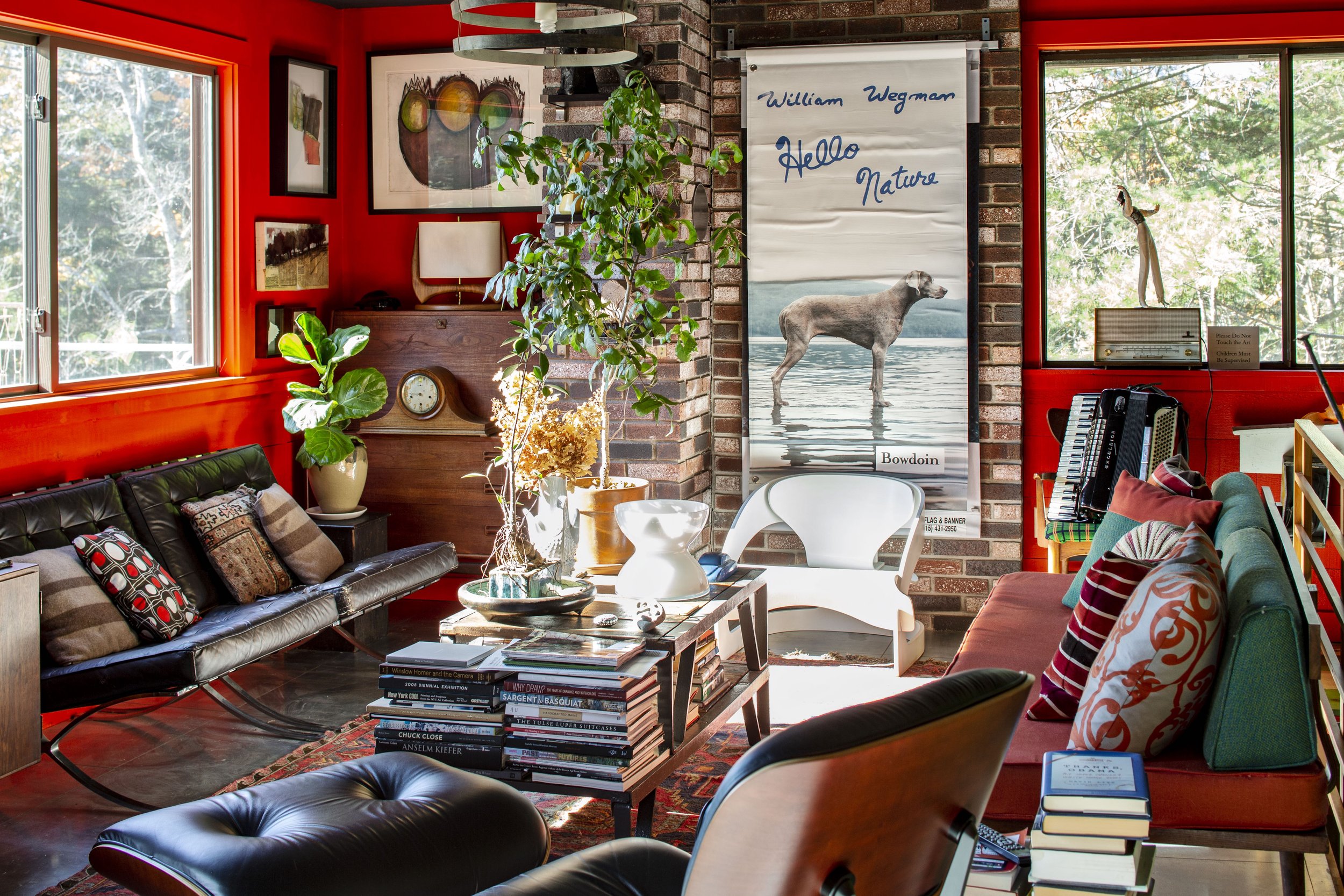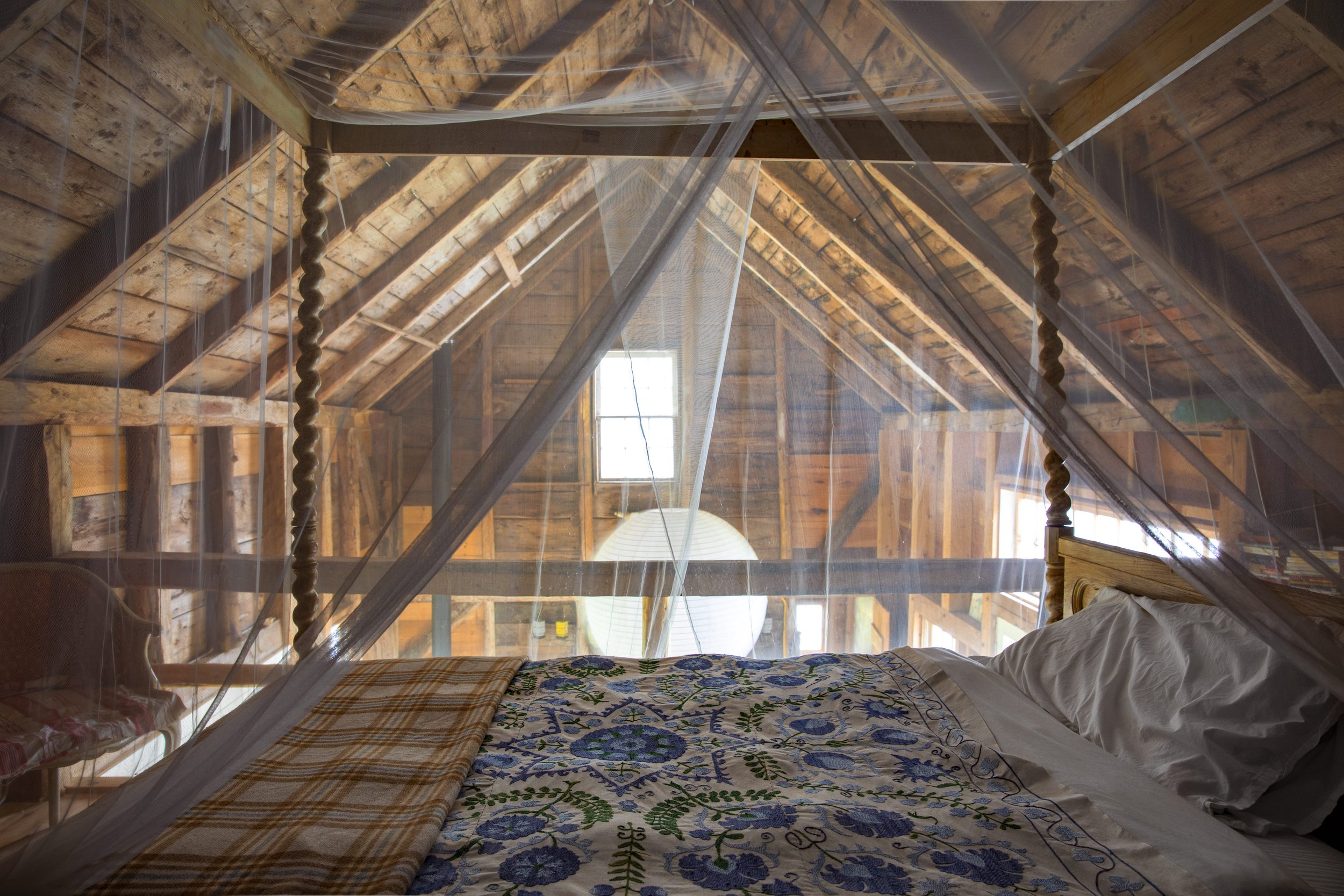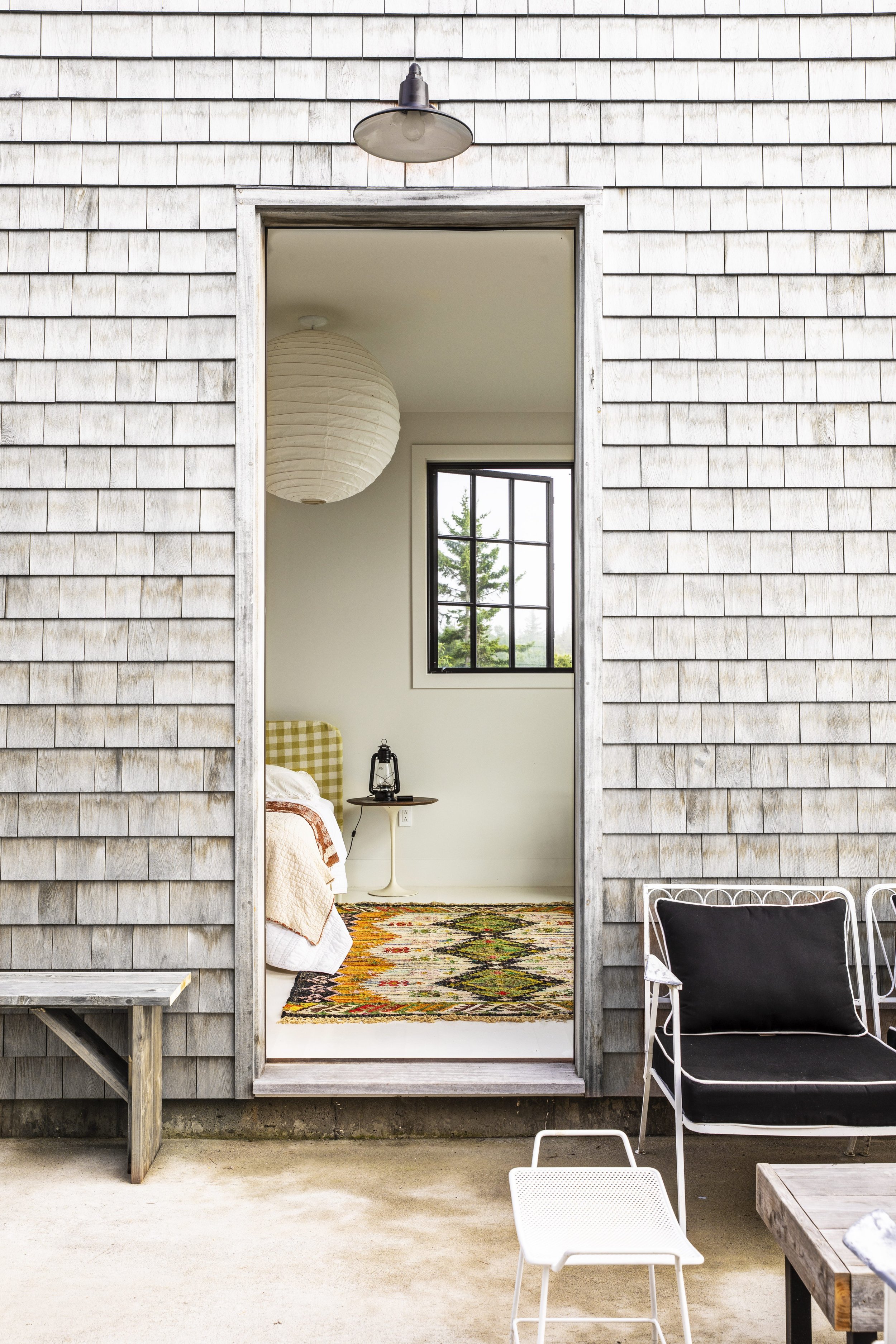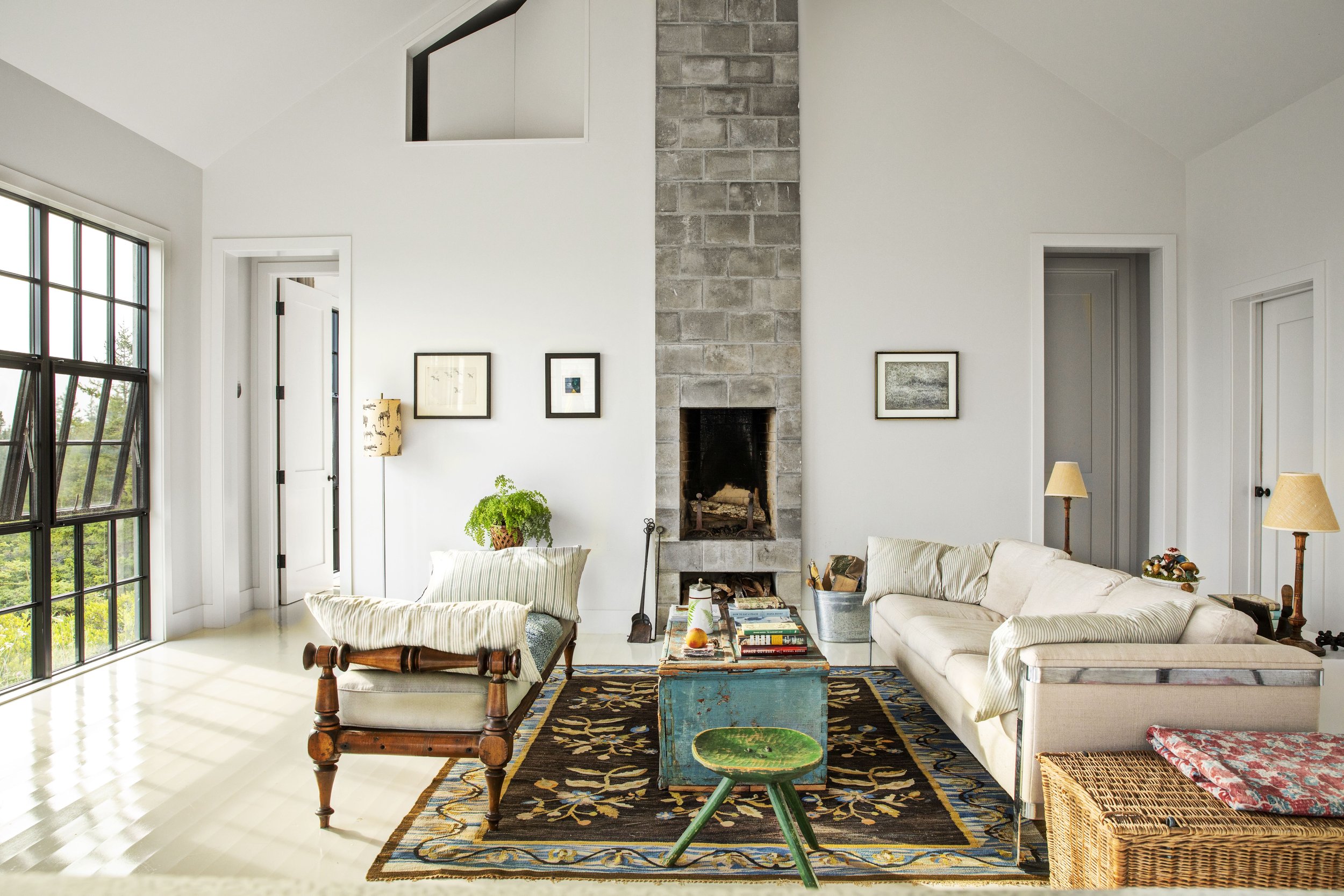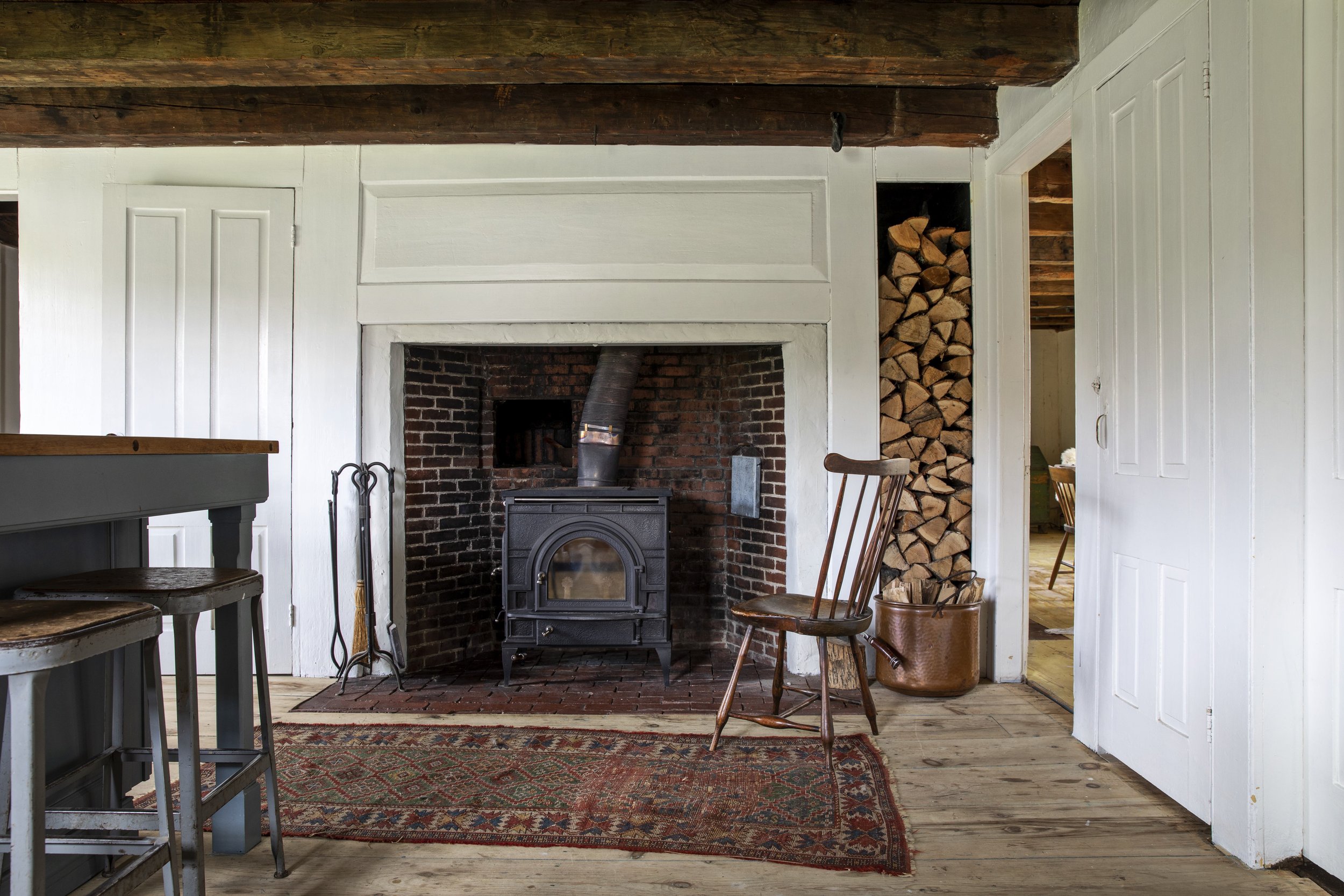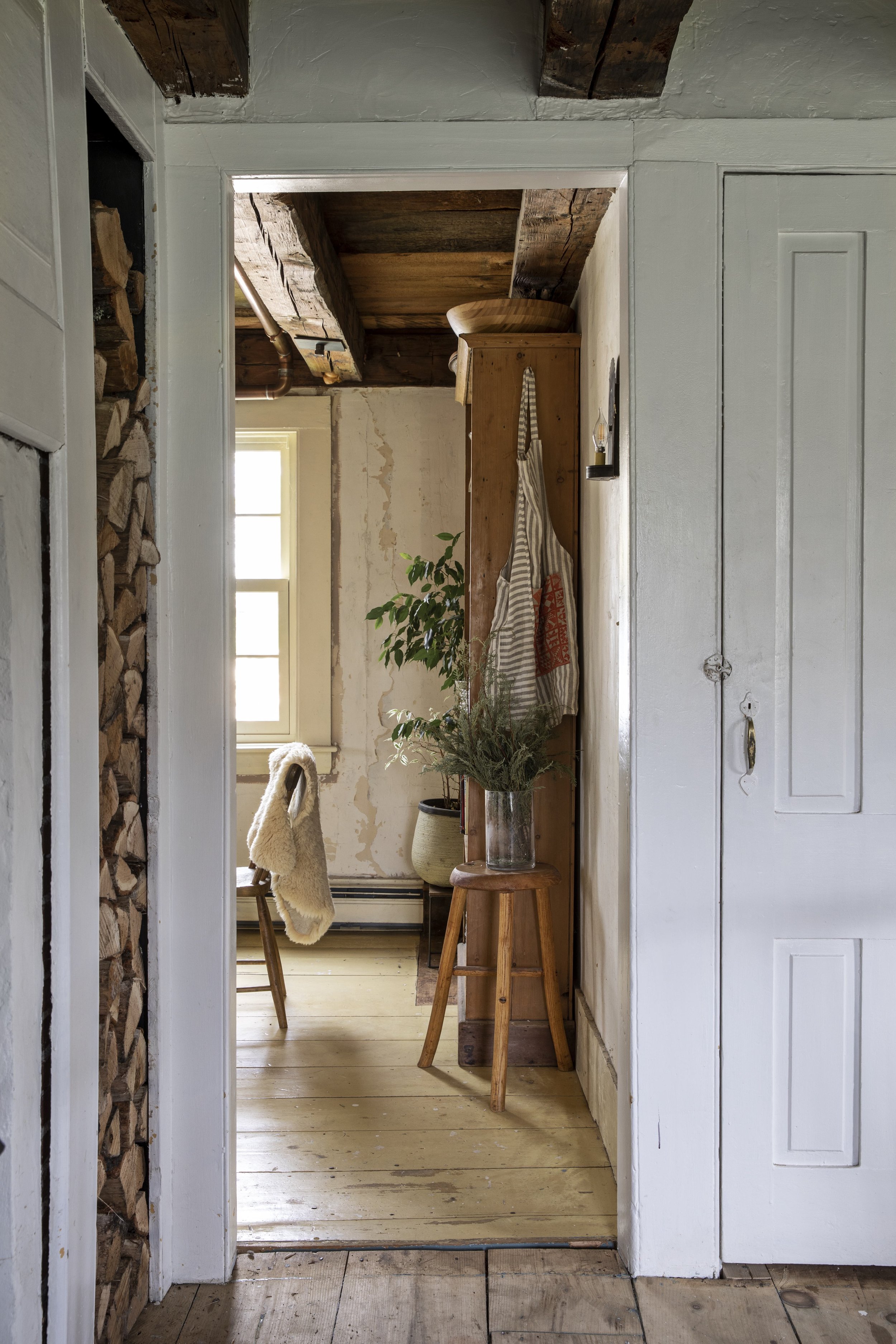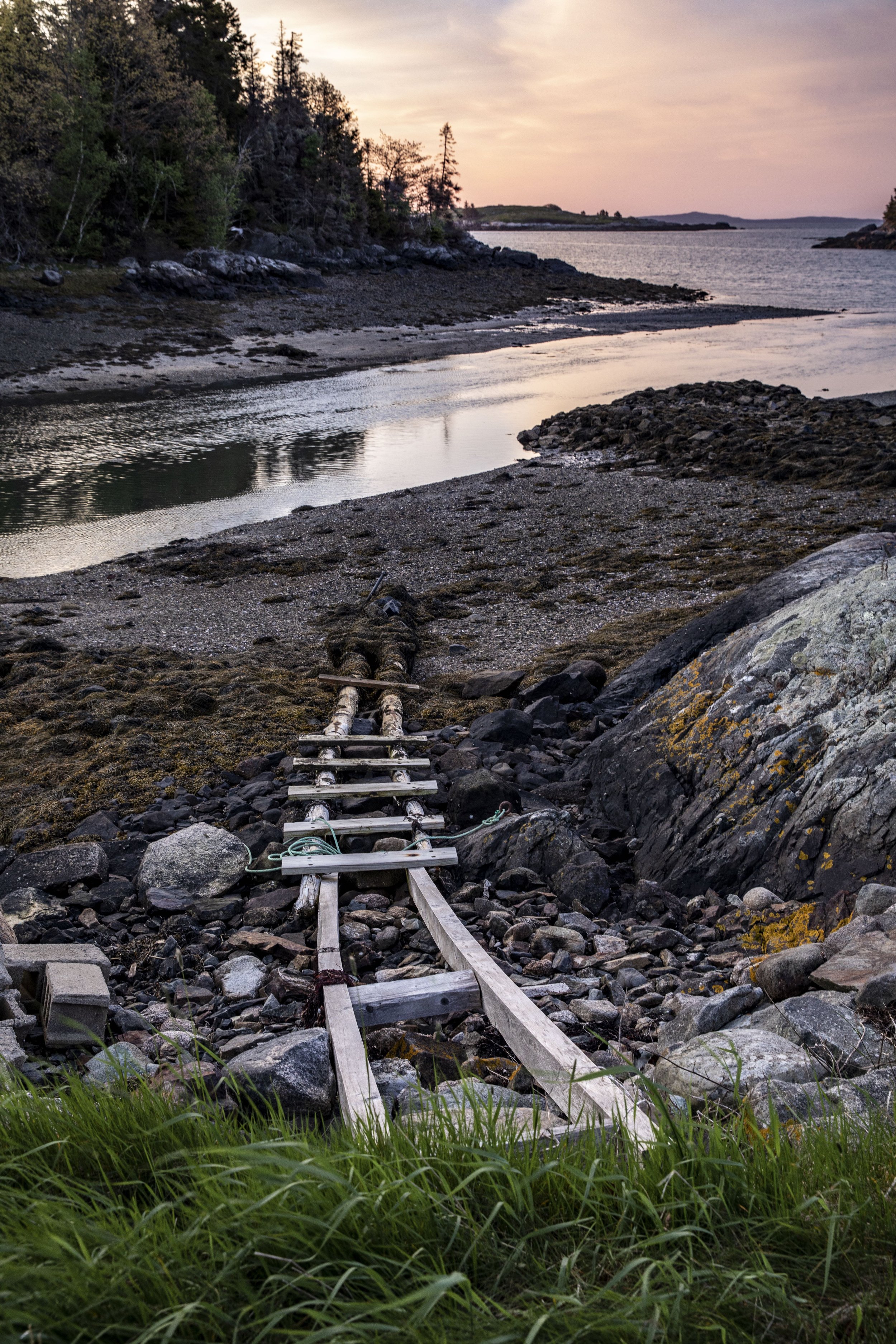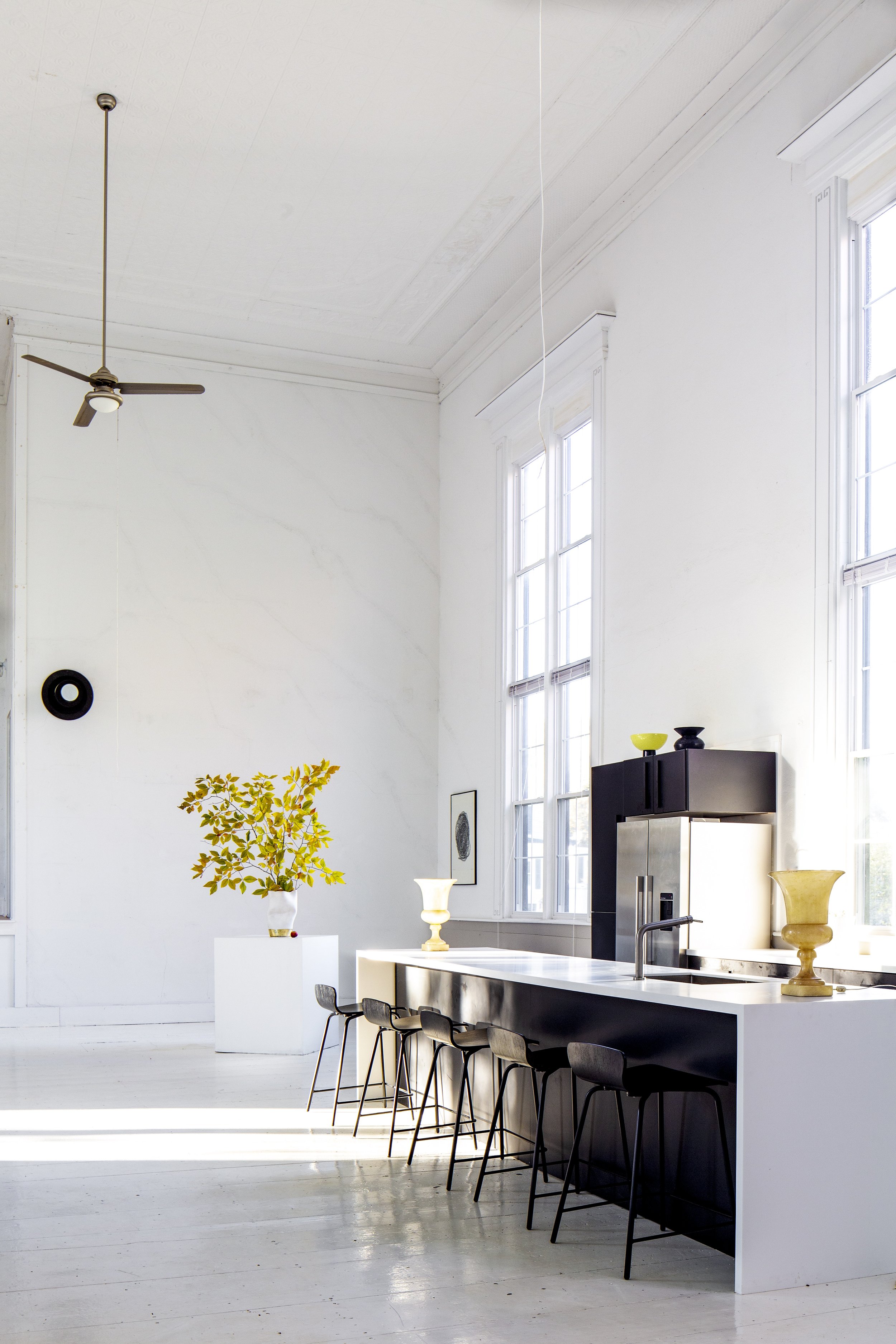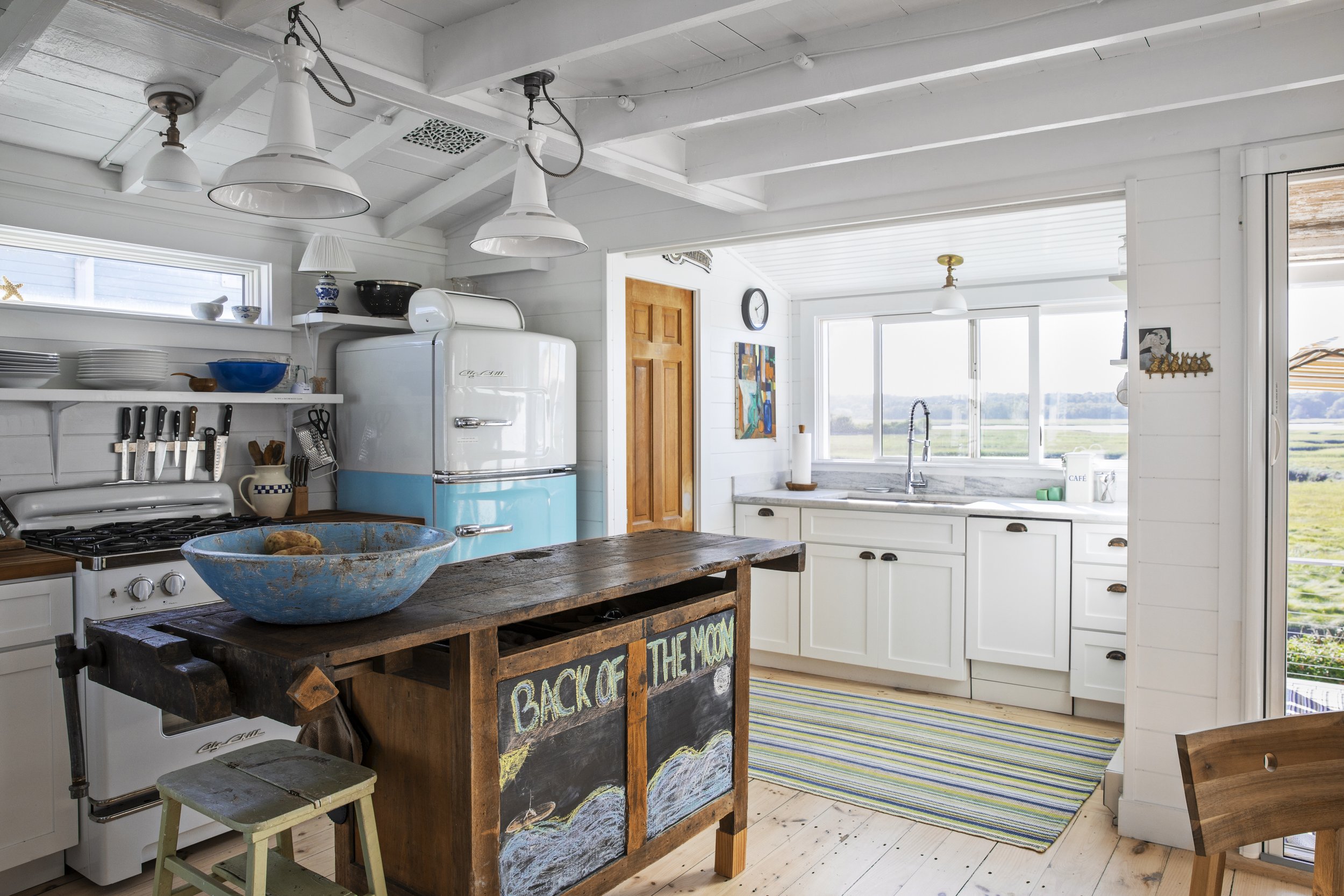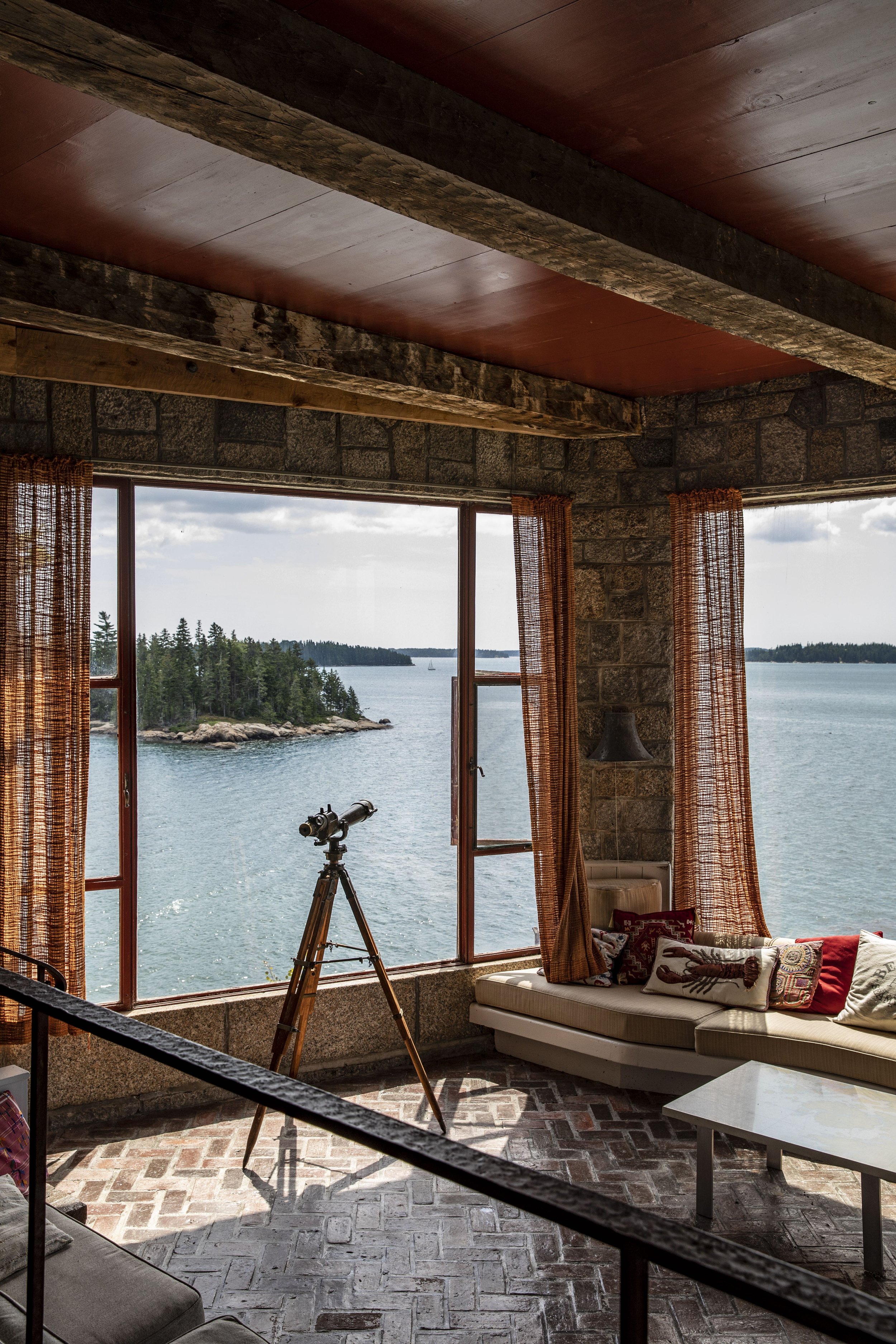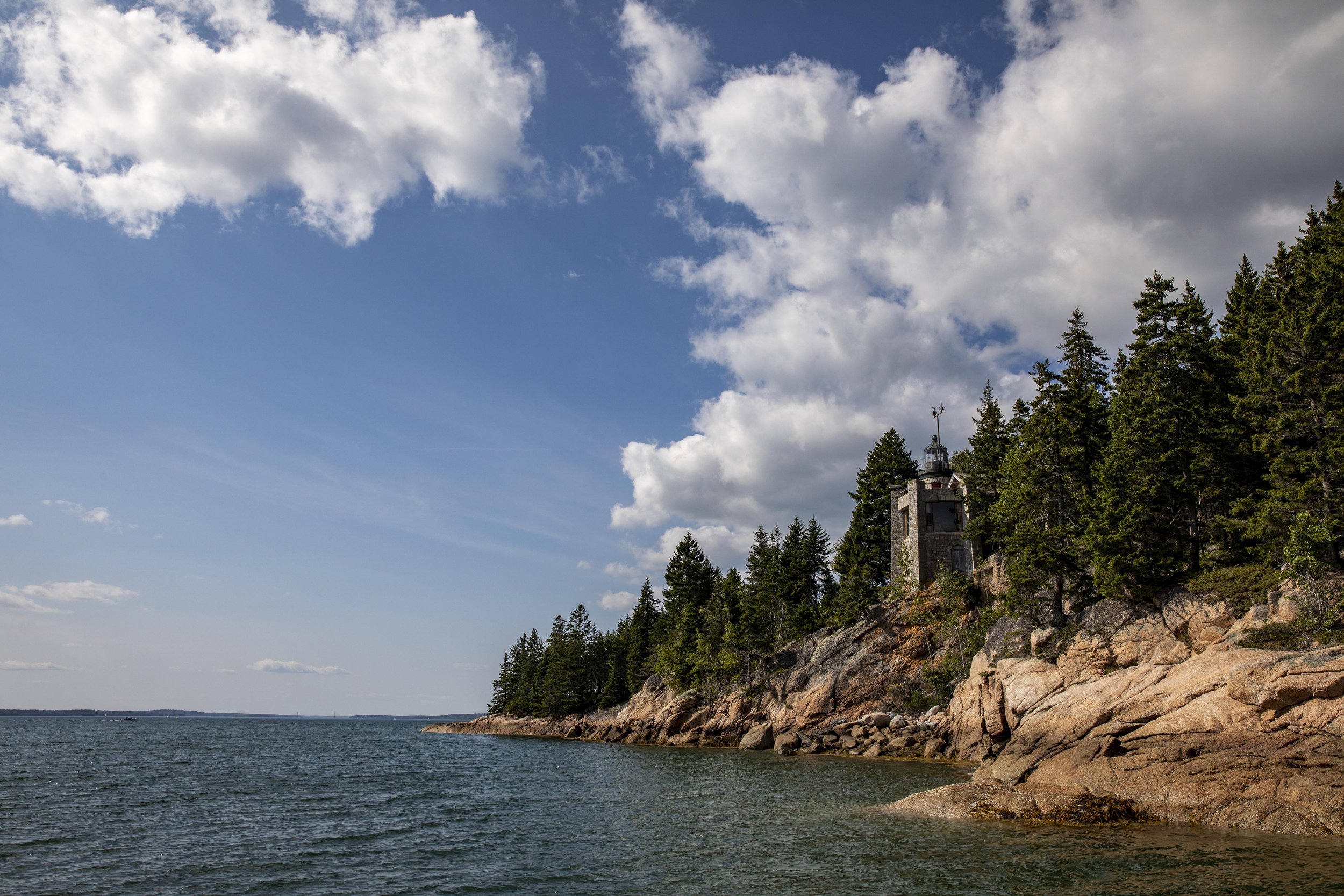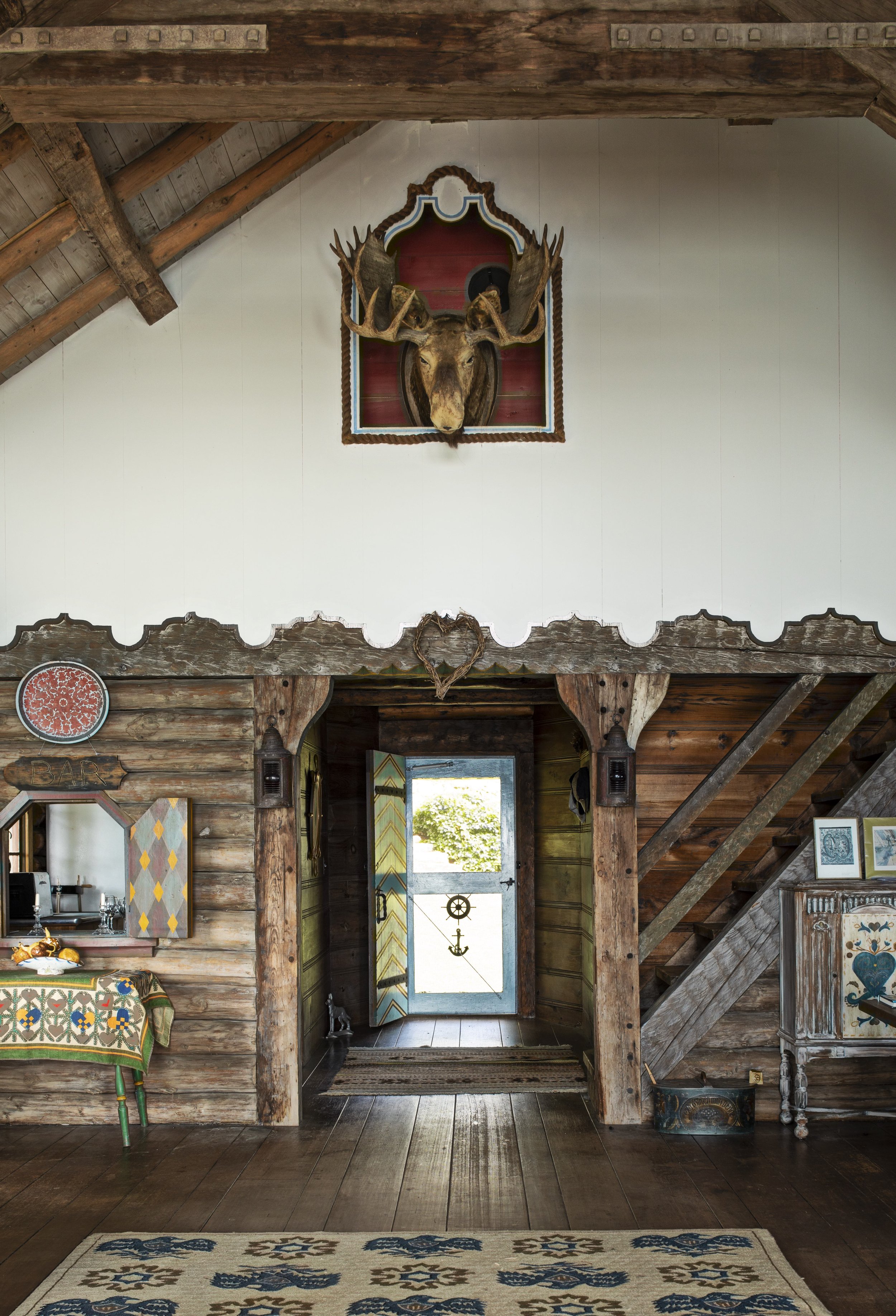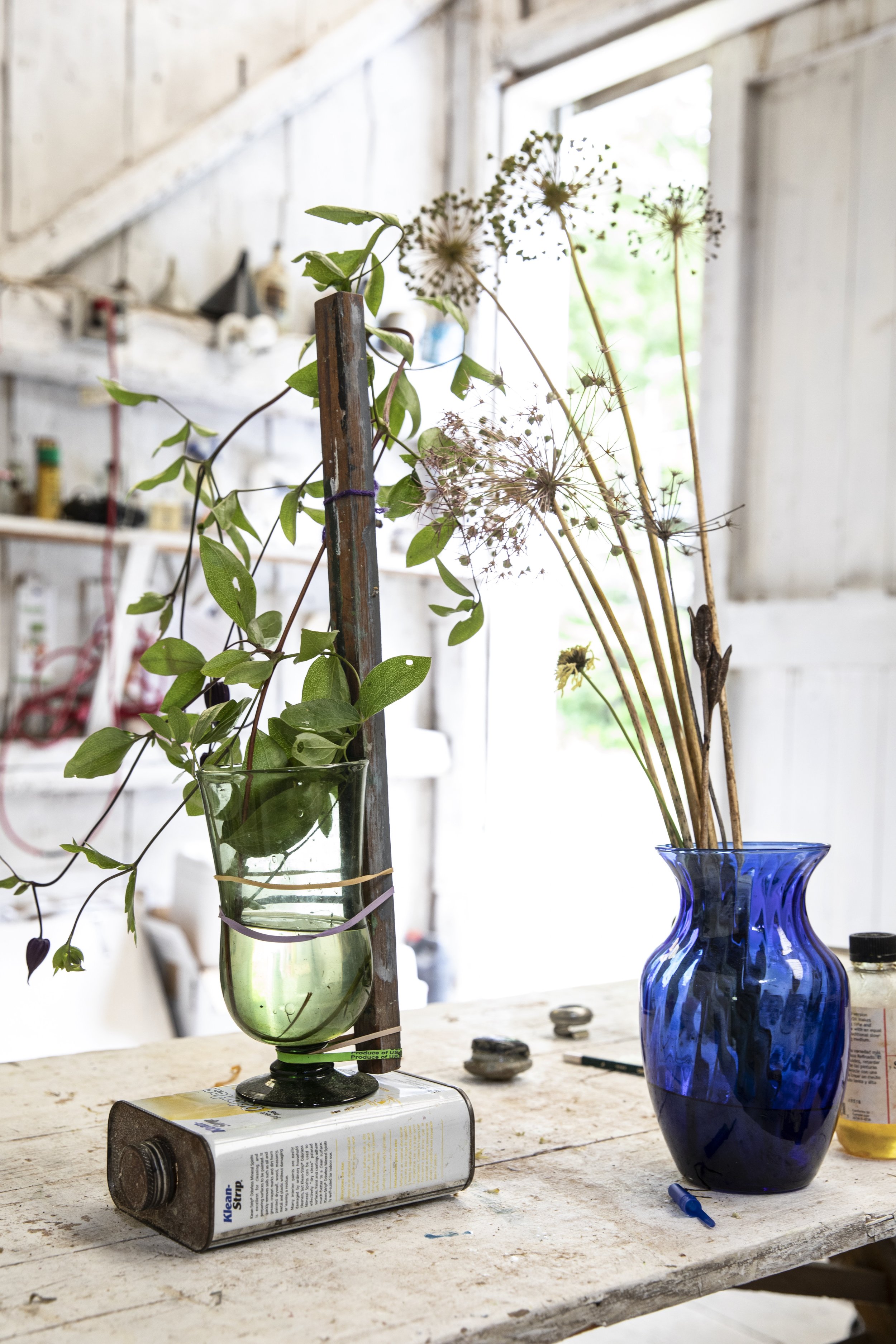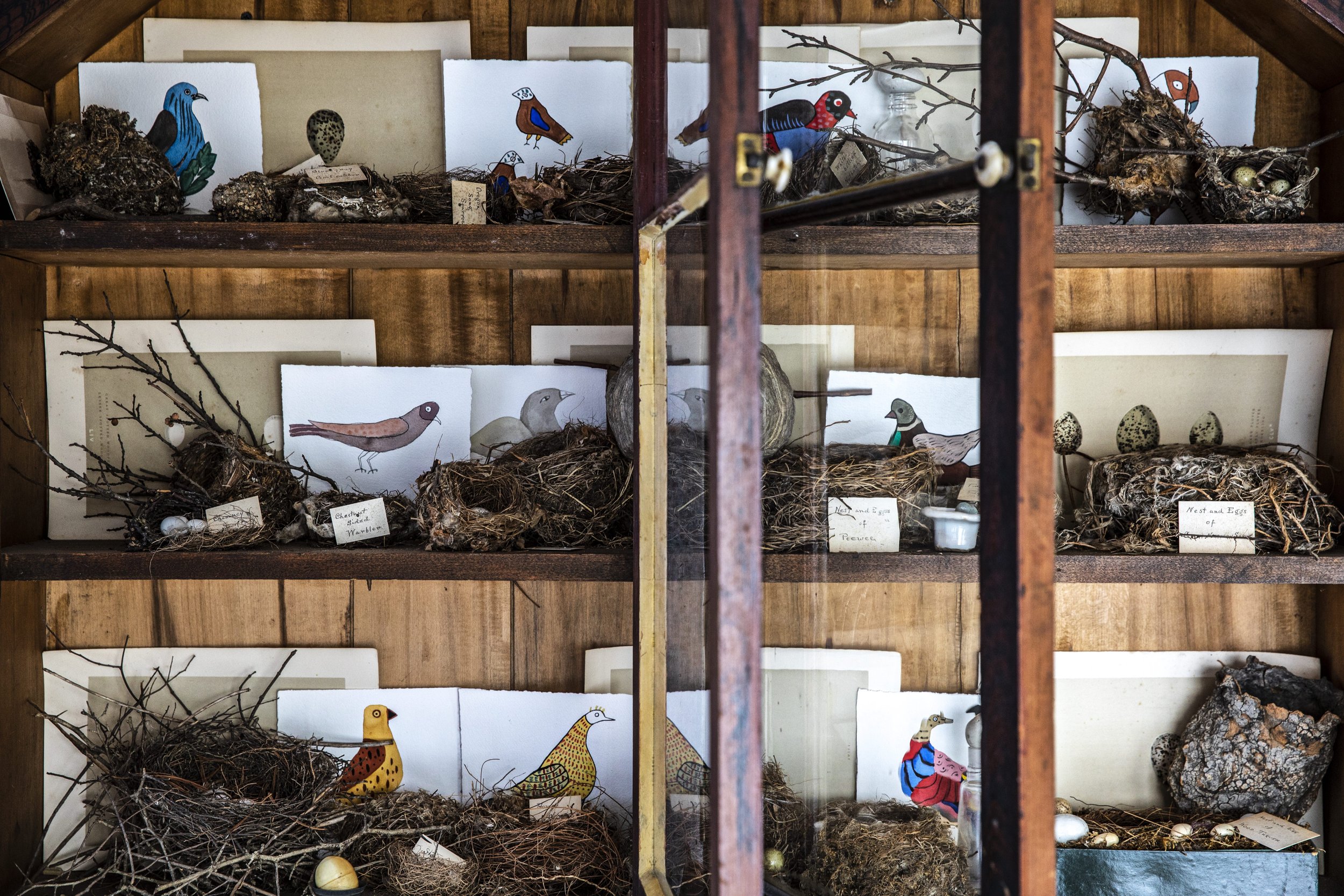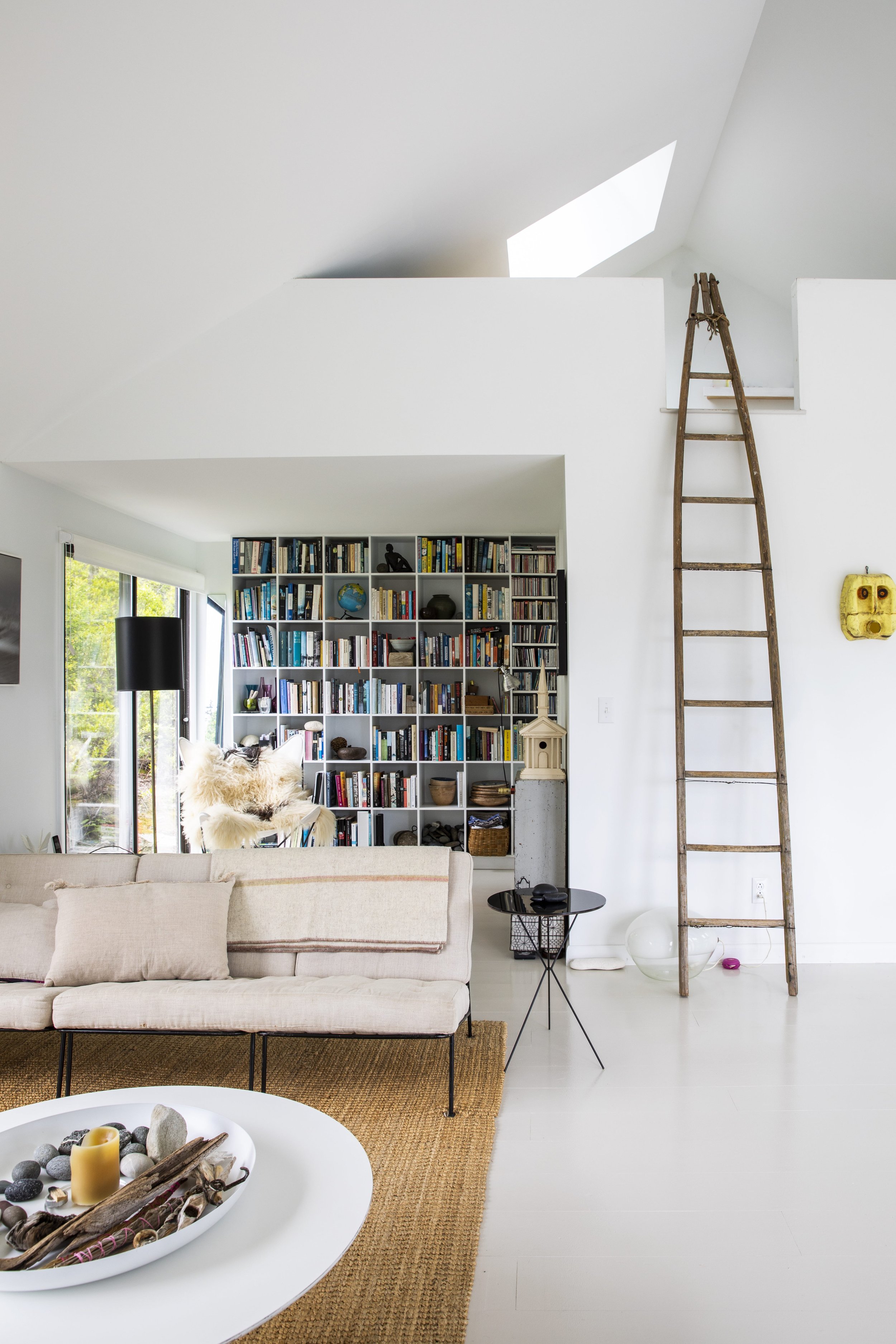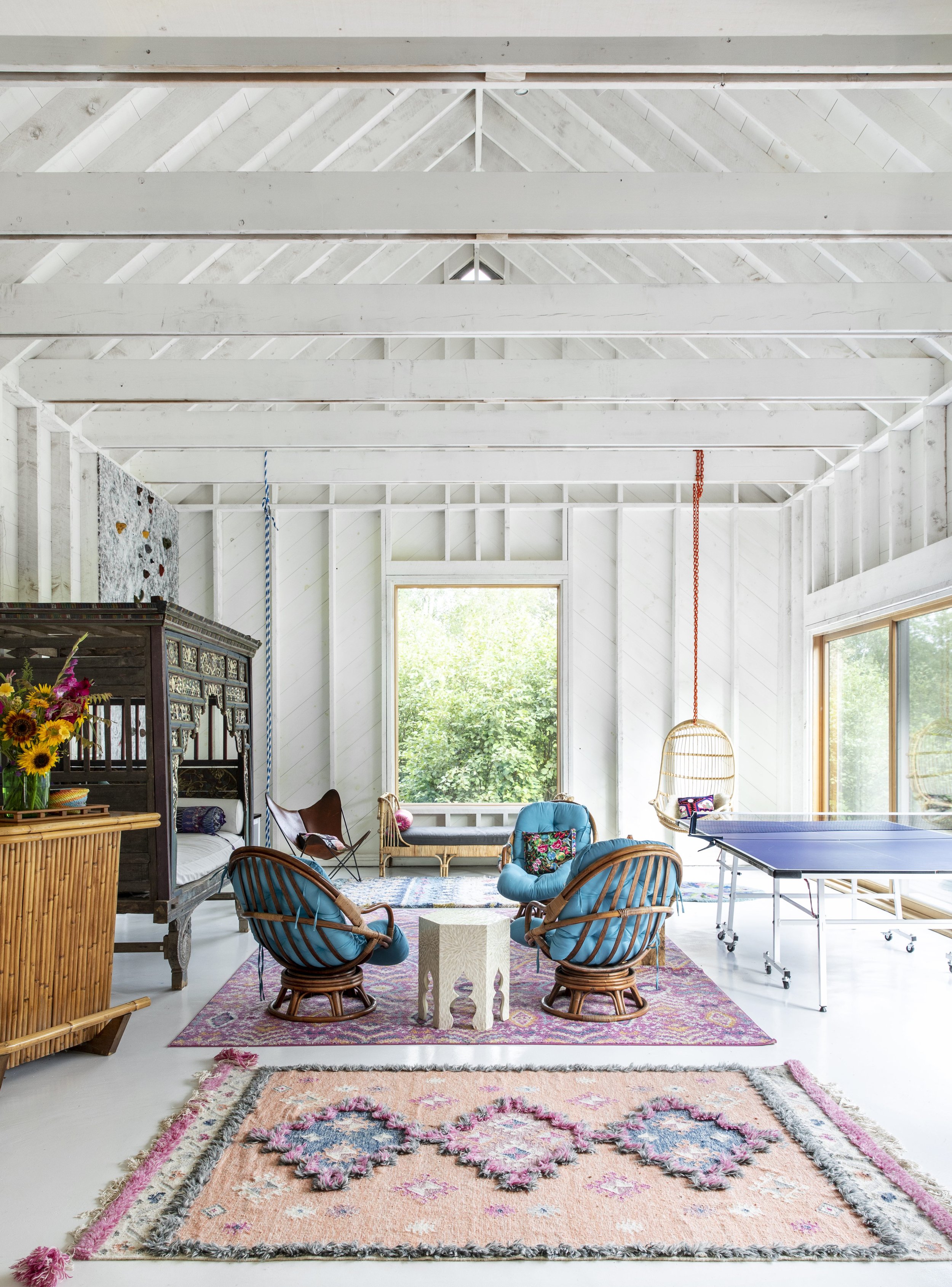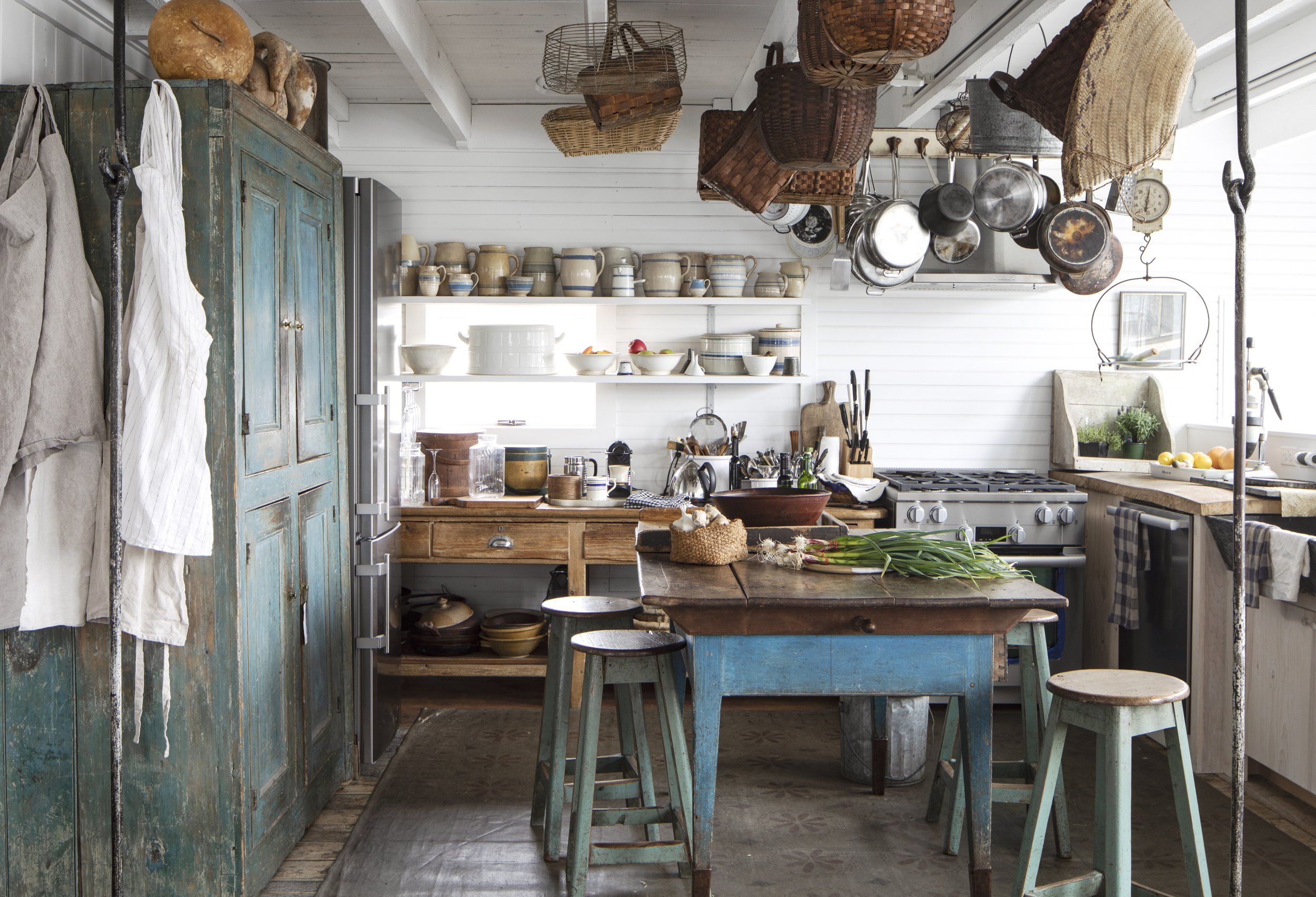Imbuing a Sense of Place Into a Home with the Authors of “The Maine House”
Exploring the Charms of Maine: A Heartfelt Tribute to My Dad
Hey there, lovely podcast listeners! Today, I have something truly special to share with you. As I mentioned last week, I am taking some time off to be with my family after the passing of my dear dad. During this period, I have decided to revisit some remarkable episodes from the archives. And this week, I want to take you on a journey to a place that holds a special place in my heart - Maine.
Maine, the place where my dad lived and the place where I spent countless summers during my childhood. I have so many cherished memories of the beach in Scarborough near Cape Elizabeth, and exploring the vibrant city of Portland. As a young kid, I remember taking the bus from my dad's apartment into downtown Portland to earn some pocket money. Those cobblestone streets and the delicious ice cream cones are forever etched in my mind. Ah, those were the days!
In dedication to my dad and the profound impact Maine had on his life and mine, I wanted to share an incredible book that perfectly captures the essence of this beautiful place. The book is called "The Main House," and it showcases the epitome of a perfect beach cottage, lake house, or home nestled in the woods. Trust me; you are going to love this episode!
The book features the talented authors Maura McEvoy, Basha Burwell, and Kathleen Hackett, who pour their hearts and souls into creating this stunning tribute to Maine. In our recent conversation on the Style Matters podcast, they shared their passion and stories behind the creation of this extraordinary collection. It was truly a delightful experience.
During our discussion, we touched upon the unique connection these homes have with their surroundings. In Maine, the conversation between the man-made and Mother Nature is constant and inspiring. One standout example is the stone cottage on an island in mid-coast Maine. It's constructed entirely from materials found on the island, blending seamlessly with the breathtaking landscape.
Another fascinating theme we explored was the way these homes evoke a sense of nostalgia and childhood memories. Growing up in Maine, these cottages became fixtures in our lives, filled with warmth and love. The owners shared stories of their kids exploring the surroundings, collecting tadpoles, and creating memories that would last a lifetime. It's the inconveniences and imperfections that make these homes even more special and unforgettable.
In "The Maine House," you'll also find stories of Maine's residents who pour their hearts into preserving the beauty and charm of their homes. These homeowners understand the profound impact their surroundings have on them and the sense of community that develops from living in such a unique place. It's not about flashy extravagance; it's about embracing the simplicity and authenticity of life by the sea.
As I flipped through the pages of this beautiful book, I couldn't help but be awestruck by the impeccable style of these homes. The owners have curated their spaces with a deep appreciation for their surroundings. These homes are not just decorated; they are filled with treasures that have been passed down through generations, evoking a sense of tradition and continuity.
The stories shared by Maura, Basha, and Kathleen left me nostalgic and filled with a deep appreciation for Maine and its unique charm. They reminded me of the power of beauty and aesthetics in our lives. Aesthetics convey a sense of generosity and optimism, inspiring us to create spaces that feel welcoming and enchanting. It's about cherishing the little things and paying attention to the details.
I want to express my gratitude to Maura, Basha, and Kathleen for sharing their passion for Maine and these remarkable homes. Through their words and images, they have created something truly special that evokes a world of beauty and inspiration.
I invite you to dive into "The Main House" and explore the magic of Maine. Feel the saltiness of the air, embrace the connection between house, land, and sea, and revel in the stories that make these homes come alive. The world needs more places like these - where beauty, tradition, and nature merge to create something truly extraordinary.
So, my friends, grab a cup of tea, cozy up, and immerse yourself in the wonders of Maine. Let your imagination run wild and allow the magic to transport you to a place where style is more than just fashion - it's a way of life.
Until next time, take care and keep exploring the beauty around you!
With love,
Zandra
Preserving Beauty and History in Maine Houses: A Chat with Kathleen Hackett, Maura McEvoy, and Basha Burwell
00:00 Introduction and Personal Connection to Maine
01:22 Introducing the Authors of 'The Main House'
02:41 The Personal Connection of the Authors to Maine
03:46 The Inspiration Behind 'The Main House'
04:10 The Impact of Development on Maine's Landscape
05:17 The Personal Stories and Memories Associated with Maine Houses
10:01 The Connection Between House, Land, and Sea
15:12 The Role of Childhood Memories in Maine Houses
17:35 The Influence of Style and Aesthetics in Maine Houses
19:17 Behind the Scenes Stories from the Houses
26:11 Conclusion: Why Style Matters
PHOTOS PROVIDED BY VENDOME PRESS
FULL TRANSCRIPT
Introduction and Personal Connection to Maine
[00:00:00] Zandra Zuraw: As I mentioned last week, I am going to be sharing some really good episodes from the archives for the remainder of December, because my dad has just passed and I am taking some time to be with my family. This week's episode is It's going to be all about Maine because that is where my dad lived and where I spent every summer of my childhood, both on the beach in Scarborough near Cape Elizabeth and in the city of Portland, uh, taking the bus as a young kid from my dad's apartment.
[00:00:42] Into the downtown area where he worked to get some spending money and go up and down the cobblestone streets treating myself to an ice cream cone or, uh, stickers. I was really into collecting stickers. I don't know if girls are still into that sort of thing or if boys are also into that sort of thing.
[00:01:05] Uh, I hope so because it was really fun for me when I was young. Uh, but anyway, um, I, I thought that this episode would be a really lovely tribute to my dad and to how I feel about that part of the world and that part of my life.
Introducing the Authors of 'The Maine House'
[00:01:22] Zandra Zuraw: So here are the authors of the book, The Main House. If you've ever dreamed of what a perfect beach cottage, lake house, or home in the woods would feel and look like, you're going to love this episode.
[00:01:37] I was delighted to see a book come out called The Main House, and it fulfilled all of my hopes and expectations for the beauty that comes out of composing a home aligned with where it's situated. This conversation with Maura McEvoy. Basha Burwell and Kathleen Hackett, the women responsible for creating this stunning book, gave me such pleasure, and I hope you'll feel the same.
[00:02:04] A quick note, because there were four of us on the call all at the same time, the editing was a little bit trickier than normal, so I apologize in advance if there are any quirky sounds that you wouldn't normally hear during this podcast. But hopefully it won't matter to you because the conversation is just so good.
[00:02:29] Here they are. Maura McEvoy, Kathleen Hackett and Basha Burwell.
Welcome to the Style Matters Podcast
[00:02:34] Zandra Zuraw: Welcome to the Style Matters podcast. We're having a party today. There's four of us.
Personal Connections to Maine
[00:02:41] Zandra Zuraw: I have to admit that when I heard the title of this book and I saw the front cover, I didn't even have to look at the table of contents to know that I wanted to interview you guys, , and that is because I too have a personal connection to Maine and we're gonna talk about each of you have a personal connection as well.
[00:02:58] But I spent all of my childhood summers between my grandmother's house in Auburn, Maine and a beach cottage outside Portland in a place called Higgins Beach. And um, I get the pull of Maine and, and its natural beauty and its sense of place. And I've talked in different places, either on the show or with my students about my imaginary beach cottage that I have been dreaming of for, oh gosh, um, you know, 40 years or something.
[00:03:29] I've probably been dreaming about this. There is just something about the main coast. And like I said, it's a sense of place and we're going to really talk about that. So So thank you, first of all, for indulging my fantasies, because this book hits them all.
The Inspiration Behind 'The Maine House'
[00:03:46] Zandra Zuraw: But I wanted to start with each of you about why you wanted to make this book.
[00:03:51] Maura McEvoy: Okay, this is Mara. My grandmother never wanted to travel anywhere in the world. She just wanted to go from her house in Massachusetts to the back porch here in Maine. And from that back porch, we look at about a mile of marshland. The back end of that view is a hill. at a certain point, and I remember this so clearly, the, um, this thing called a condominium complex was built on that hill when my grandmother was quite old.
[00:04:25] And the sadness And the dismay of watching that, you know, thing being built over my grandmother's sunset view. And I think it really left a mark with me. We were devastated. So as I grew up and I watched these, we're a beach community and a very, you know, humble beach community originally.
[00:04:49] Zandra Zuraw: I love those.
[00:04:50] Those are the best kinds. The
[00:04:51] Maura McEvoy: house that I live in was, um, you know, one room up and one room down with a big porch. And because everybody was outside all the time. And so watching them starting to, you know, people move here with a lot of money and they, they knock them down. So for me, that was it. And I'm sure it started with my grandmother's reaction to that condominium
[00:05:16] Zandra Zuraw: complex.
[00:05:17] And Basha, so you had, um, so you grew up in Portland and you had the connection to South Freeport and so Are any of the places that you remember from childhood, are they still standing?
[00:05:29] Basha Burwell: Yes, my grandparents houses are still standing, and they're there in South Freeport, and our cottage, which is right on the harbor in Hairstead, is still there.
[00:05:37] We still share it with a hundred cousins. We, we, we essentially have twin cottages, and it's also tiny and still has the original bathtub that's, I think, about, Maybe three and a half, four feet long. And it's quite, it's essentially untouched inside.
[00:05:52] Zandra Zuraw: Love it. And then Kathleen, you were brought in and what's your connection to Maine?
[00:05:57] Kathleen Hackett: Well, I, I have to give my mother, um, all the credit because, um, she called my sister and I, her traveling companions, and she loved to drive through the beautiful towns in Vermont where we grew up. Always, always pointing out the handsome historic architecture. You know, she'd always say, look at that beautiful door.
[00:06:20] And aren't those old windows just magnificent. And now that's a perfect cupola. She would go on and on. And we were like, you know, seven and eight. And the flip side is she, she just, you know, murmur to herself. Isn't it a sin they tore that wonderful old house down and all of this sunk in, but coming from, you know, the only landlocked New England state, we would take summer trips to Maine to a Gunquit beach in the seventies and early eighties and everything just tasted better, felt better, looked more beautiful there than anywhere else.
[00:07:01] But now. With my own family, we spend our summers right around the corner from my sister in a house that I walked by for 20 years, every single time hoping it would be mine one day. It's a tiny, tiny cape built in 1860. It has that pretty front door, those nice windows and a preserved Carriage house door, which, you know, needless to say, my mother would approve of.
[00:07:27] Um, but, but more to the point, I think it, um, it exemplifies the kind of, uh, main living A version of it that I know Maura, Basha and I are hoping inspire people, you know, it's not excessive. It's not over the top. We are living sort of in conjunction with the surroundings. I, I just hope that what we're doing makes a dent.
[00:08:02] Zandra Zuraw: Right. Oh, well, I mean, you cannot help but look through the book. And then read the, the sort of the love and the passion in your words and, and want to preserve everything. It would be a horrible shame if all of this were to go away and, and, you know, I too have witnessed the change, um, in, in who comes to the beach each summer.
[00:08:27] And what, what happens because Higgins Beach, uh, was this little community with these little beach cottages. And. Then, slowly over time, huge behemoths would be bought, would be, you know, the little cottage would be torn down and these huge, like, mansions, and they looked like something you could pluck out of Suburbia, USA.
[00:08:49] I mean, there was nothing that tied the architecture to the land. Um, they were all about modern conveniences. And I know you talk in your book about the slap of the screen door and for whoever has ever stayed at an old cottage, uh, you know, they're on a lake or on a beach, you know, that sound. And it's so it's annoying in the best way.
[00:09:15] I also want to say that my dad and my grandmother and then me to my children, we can't help ourselves, but we always breathe in this big breath and we go, Oh, you're going to sleep well tonight. There's something about the ocean air that makes you sleep deeply. My
[00:09:30] Maura McEvoy: mother and my grandmother always said that.
[00:09:33] In the
[00:09:34] Zandra Zuraw: introduction, Kathleen talks about how you all resisted the idea of coming up with a definition for what a main house is, which I totally get because I resist all kinds of style categories and, and, and boxed in definitions. But, but I do know that there are some common themes that you see in many of the homes.
[00:09:54] that you've included in your book, and I'd like to talk about some of them, at least the ones that I kind of pulled out.
The Impact of Architecture and Nature
[00:10:01] Zandra Zuraw: Starting with the connection between house, land, and sea. How do you see the homes reflecting or having conversations with their surroundings?
[00:10:10] Kathleen Hackett: You know, so much of what makes Maine special is that constant dialogue that goes on between the man made and Mother Nature.
[00:10:19] And when, when that, the conversation only sings when, when we're respectful. of what's around us. So, there are so many great examples of this in the book. One of which is the stone cottage on page 192. It's on an island in mid coast Maine. It's made entirely from the material that the island provided. Oh,
[00:10:46] Zandra Zuraw: I know exactly the house you're talking about because I've bookmarked it a million times.
[00:10:49] It's the stone house. Yes, I'm looking at it as you speak. Go ahead. It's actually
[00:10:53] Kathleen Hackett: on the cover as well. Okay. Right. Um, and it, it appears as if it spontaneously sprouted up from the land. And you know, the, the fascinating thing about this and the, the point. That we'd love for people to take away is that, um, the water determines how much land surrounds that, surrounds that house depending on the tide.
[00:11:18] So when the tide is low, they have three acres. When the tide is high, they have one acre. There are no bulkheads, no barriers, no elaborate engineering to keep the water at bay. This is total respect for what's around. The house, um, you know, every spring when the owners open the place up, they fully expect surprises like the one year that a ferocious tide through a huge boulder into the middle of their living room.
[00:11:48] Oh my gosh. You know, they're working with mother nature here. So if you look at the picture of the living room, you'll see that a rod runs the circumference of the. Uh, the living room up high and it has hooks hanging from it. And this is where, uh, they hang their furniture up in the off season. Ah! Oh my gosh!
[00:12:13] If the old boulders and water come crashing through, their furniture's safe.
[00:12:22] Zandra Zuraw: I love it. I can see the hooks
[00:12:23] Kathleen Hackett: right now. Yeah. And there's another really great example in the mini modernist. compound on page 116, which is this beautifully scaled trio of buildings that kind of bring to mind Monopoly pieces.
[00:12:39] They're super simple. They, they do nothing to distract you from the beauty. surrounding them. They look Lilliputian, really, nestled among the towering spruces. Yes. And they're clad in, I think it's spruce, it may be spruce or fir, that, that's been, that's weathered to the color of the granite ledge that surrounds them.
[00:13:03] Zandra Zuraw: Yeah, you can, I mean, they're, they're just so much a part of the land. You, you, I mean, it's, it's not that you can't see them, but they are. They, they are completely, um, respectful of the property itself. Yeah,
[00:13:17] Kathleen Hackett: they're having a really civilized conversation with nature, right? And, you know, the impulse might be to build one big house, but we all know that we typically live in.
[00:13:30] Two, maybe three rooms in any house. And here was a solution, um, that suited those surroundings just so beautifully.
[00:13:39] Zandra Zuraw: So I can see how one big house would have not worked. I mean, the way the houses are even there, it's almost like they were kind of. thrown on the ground the way the boulders have been thrown on the ground.
[00:13:52] That is exactly, exactly right.
The Significance of Naming Cottages
[00:13:54] Zandra Zuraw: Mora, you talk about naming your own cottage Back of the Moon. And, like I've now said several times, growing up on the beach in Maine, all of the cottages are named. Is this a Maine thing, or do all cottages everywhere have names? Like, what is with the name thing? Because I love it, it's charming, but is there a backstory there?
[00:14:15] Maura McEvoy: In my mind, I think the naming of these beach cottages were, it was like naming, you know, your fourth child. They were built to be part of a family that would be, you know, that would be handed down. And in Wells here, we have a few houses surrounding us that are, um, in their 5th
[00:14:38] Zandra Zuraw: So, Maura, what is, what is the story of your name, Back of the Moon?
[00:14:43] So,
[00:14:43] Maura McEvoy: my mom's dream was to name a house Back of the Moon, which was the name of a fictitious inn in, um, a movie, uh, starring Gene Tierney called Leave Her to Heaven. Um, and it was an inn on an island in Maine. And she always fell in love with that name. And so I, I took
[00:15:05] Zandra Zuraw: it.
The Connection Between Childhood and Cottages
[00:15:06] Zandra Zuraw: Another theme that I picked up, uh, is, is the idea of coming of age.
[00:15:12] And I don't know what it is about these cottages, these homes that seem to cement so many childhood memories in their owners. But, but it's so true. Don't you think there's something particularly appealing about these homes or where they're situated that appeals to children?
[00:15:31] Basha Burwell: The way you ask that question is perfectly put.
[00:15:34] Um, I thought of a quote that relates to this question, and E. B. White once said, Always be in the presence of wonder. And, as you know, his writing cottage is actually featured in the book. And the back cover is actually the dock that is in front of his writing space, his writing cottage. But the thing about the homes that we chose for this book is that most of them are situated in nature in some way.
[00:16:06] They might be on a lake or on a cove or have wild Atlantic ocean out in front of them. They might be in the woods, you know, on an Island. Um, and I think that children who get to grow up in these spaces and places are. Open and curious, fully awake, you know, all five senses all the time. They're playing, they're exploring, they're living in the moment, and most of these people get to go back to these houses.
[00:16:41] Either they live in them year round or they're. visiting them time after time. And those experiences of collecting tadpoles or stomping in mud puddles or hiding in closets that smell like old mothballs, you know, or coming in from the forest and there's pine on your fingers because you've been climbing the trees.
[00:17:04] Um, I had a memory of, I would sleep in this, Grandmother's my grandmother's house and it was up in an upstairs bedroom that had those highly slanted walls. Oh yeah. And I would stare at the wallpaper and it's forever imprinted on my, in my memory. It's the weirdest, most wonderful kind of memory I have.
[00:17:25] You know, it's taking a bath in this little tiny tub that you have to fill up with pots and pans of hot water from the kitchen. You know, I just think that, um, that's what happens. And then we become Adults, and luckily we can still hold on to those, most of those memories.
[00:17:42] Zandra Zuraw: I, I think the inconveniences themselves that these cottages impose upon us are what makes them special.
[00:17:51] Like that filling up the bathtub with pots and pans. I mean, in the moment you might be rolling your eyes, but Of course your child's gonna remember that. I mean, it's memorable, right? Exactly. Exactly. So I, I remember, uh, another, another thing that I used to do as a kid. A lot of ceilings and walls are still in their, their unfinished pine.
[00:18:13] And so, you know, staring up from your bed at the ceiling and seeing the faces that are in the knots of the wood, or the creatures, the animals. And then I remember them snuggling with my kids. in the beds and doing the same thing and seeing what creatures and animals they saw. I mean, it's the simplest things.
[00:18:32] They come out of boredom, but it is memorable. I think
[00:18:35] Basha Burwell: what, what also ties back to kind of this, this theme and idea of, of, um, not, not really wanting a lot of change is that children love that, love the kind of the familiarity of coming back to a place that looks the same. And then there's the, the couch with the old.
[00:18:52] Slip cover that's maybe faded and torn and not so beautiful anymore, but it doesn't we don't want it to change, you know The horsehair mattresses like I remember those being taken out of our cottage and it was like upsetting in a way even though We want to be sleeping We're comfortable beds.
[00:19:10] Zandra Zuraw: What other other common themes or stories?
[00:19:13] Or anything else that you'd like to tell that we haven't talked about yet?
[00:19:17] Kathleen Hackett: Well, I guess I, there are so many stories from the owners of these cottages that underscore exactly what we're talking about. Um, the one that comes to mind It immediately is when the owner of the saltwater farm first saw the farm with his then wife.
[00:19:39] The minute he stepped on the property, he was smitten, they were smitten, uh, they got back on the ferry, had a cup of tea, made a call and bought the farm. And he says, I didn't even. You know, run my pocket knife into a beam in the barn to see if it was, you know, going to fall down any minute. Uh, when, when they went to look at the place, the broker said, this place needs a lot of love.
[00:20:06] And this is a man of very few words. And his, his final comment to me, 40 years later, he said, Kathleen, that's what I do. Um, I give it a lot of love
[00:20:19] Maura McEvoy: and Basha, don't you agree that, um, and Kathleen too, you were there that he is a man with such individual
[00:20:27] Basha Burwell: style and yet it's one of the most spare and unfurnished homes that is in the book.
[00:20:36] It's, it's shockingly beautiful, kind of almost shaker quality, the way he lives in it. It's just the bare essentials
[00:20:43] Kathleen Hackett: are there, but what the result of that is that The surroundings do all the talking, you know, what's so beautiful about a bedroom with a bed, a table, a lamp, and a chest of drawers, is that the, it's, it's what's outside it that makes that bedroom just breathtaking.
[00:21:04] Zandra Zuraw: Oh, I, I wanted to curl up and read a book all day long on that bed and occasionally glance out the window as, and of course my window would be open and of course the linen curtain would be blowing in the breeze and you know, the dappling the light. I mean, I was there. I was totally there. Well, we want
[00:21:21] Basha Burwell: you to feel that way.
[00:21:22] And one of the neat things about this project is that the three of us have actually been, we've slept in these places. We've had lunch with these people. We've borrowed their cars, their trucks. We've been on. boat rides with them. I mean, it's, we've swum, we've gone swimming in front of their lake houses on, you know, we were on hot, extremely hot August days.
[00:21:43] I mean, it's, it's been like an entire kind of experience.
[00:21:48] Zandra Zuraw: Best book writing experience ever.
[00:21:51] Kathleen Hackett: I have to say, Sandra, hands down. Best book writing experience ever. And I wrote a book for Dolly Parton, so that's saying something.
[00:22:03] Zandra Zuraw: Wow, that's some stiff competition, yeah.
Behind the Scenes Stories
[00:22:07] Zandra Zuraw: Anybody else have any other kind of behind the scenes stories you'd like to share about any of these houses?
[00:22:13] Basha Burwell: One of the, like the beauties that I mentioned early about making this book is that we, we kind of set off on these somewhat impromptu, I would say, almost like road trips. Um, we're often taking, you know, getting up at four 30 in the morning to drive, to take a ferry, what have you. So we had a shoot scheduled on an island in Midcoast Maine, and Maura and I were able to, we were invited to sleep at, at the living space, which is the Crow's Nest, which is the name of the property in the book is called the house over the shop.
[00:22:46] And we had to climb this rickety ladder, which I think might be a vintage apple picking tree ladder, a ladder that you would use to climb an apple tree. It
[00:22:57] Zandra Zuraw: does look like that. And it looks, it looks very much like, are you, this is where I'm going to sleep, really?
[00:23:04] Basha Burwell: Yes. And so that we had to kind of very carefully climb up this little ladder.
[00:23:08] And then we ended up wanting to shoot up in this little sleeping loft. And it had these lovely little camp cots that she bought at L. L. Bean, but they were covered in these incredible French linens.
[00:23:20] Zandra Zuraw: I think that's, that's one thing I love about main houses is the, all of this beauty that the owners put into things.
[00:23:30] Even though the surroundings themselves are kind of rough, and that sleeping loft is a perfect example. Those linens are gorgeous, but it's unfinished beams that are, that you're sleeping under, and the eaves, I mean, but it, there's something about that mix of, of kind of good living in, in a kind of rough environment, and I guess that's, I mean, the ocean is rough, the ocean is powerful, the ocean is commanding, and, and so it's kind of a nice way of bringing that idea inside the home.
[00:24:00] I mean, I'm just thinking about lobster dinners, where you, you, you're cracking the lobster open. I mean, it's this gourmet food, at least most of us think of lobster as gourmet, but you're eating it, you know, on a picnic table that's, that weathered, you know, I just, It's such a lovely mix. I have
[00:24:18] Maura McEvoy: a, um, a, uh, behind the scenes story in that vein.
[00:24:24] It was when I was shooting the, the house on the Island that's on the cover. I was taken out to the Island by the caretaker. Uh, and it was off season and, um, and I said to him, Oh, you know, you can just drop me off and I'll be fine and come back in a couple of hours. And it's the only house on this little tiny island.
[00:24:48] There's nothing else but the house. And he said, no, no, no, no, I can't leave you alone. If something happened, you know, I'll, I have plenty to do. I shot for a couple hours and then I was waiting for like. The Twilight Perfect Sunset shot to happen and I was really done and I said, well, you know, I'm just gonna hang out and he said, Oh,
[00:25:10] Zandra Zuraw: would you like some oysters?
[00:25:12] Oh my gosh. And I looked at him and I said,
[00:25:14] Maura McEvoy: Um, uh, okay, but like, I think the electricity wasn't even on in the house and he said, okay, follow me. And we go walking down this, you know, beautiful, uh, pine needle path down to this little dock and he gets on his hands and knees and he pulls out this bag from the water.
[00:25:37] Zandra Zuraw: of oysters. Oh my gosh.
[00:25:39] Maura McEvoy: And, and then he, you know, he got two beers out of a cooler in his little boat and we sat there and he cracked open the, the beers and the oysters and we waited for the sun to be perfect. Oh
[00:25:52] Zandra Zuraw: my gosh. It was, it was
[00:25:54] Maura McEvoy: heaven. It was absolutely a heavenly moment.
[00:25:58] Zandra Zuraw: This has been such a fun conversation.
[00:26:02] Um, I, I, well, I don't need to say any more. It was just, as you can tell from my own voice, I mean, I'm just gobbling it all up.
Conclusion: Why Does Style Matter?The Influence of Style in Maine Houses
[00:26:11] Zandra Zuraw: I'd like to ask each of you, why does style matter?
[00:26:16] Maura McEvoy: So at the main house, our idea of style is really about more of a sense of community than a sense of fashion. It's, it's why we in life travel, you know, if there was not style, we wouldn't travel.
[00:26:33] In Maine, there's definitely, um, A style that is about saltiness and community and family and generations and all of those words, um, that just represent a certain kind of way of life. And that's at the main house, our idea of style.
[00:27:03] Zandra Zuraw: I think that any community where the weather can be a bit extreme, bonds people together because you've all been through something together.
[00:27:13] You've been through a storm together. You know, you've been snowed in or, or in Maine, so much of the livelihood is dependent upon the, the, the fishing, the seafood. And so that, you know, that can be dangerous. And I just think that there's something very much about the way people make their living and yeah, You know, the way they pull a bag of oysters out of the, off the side of the dog just to have lunch or a snack, that, yeah, it, it creeps into the style.
[00:27:40] It defines the style. Who, who wants to go next?
[00:27:44] Basha Burwell: So, the way, I mean, I've always grown up as somebody, I think, quite sensitive to just my surroundings, my immediate surroundings. Um, and, The fact is that in the main house book and in my own home, Maura's house, Kathleen's house, um, good, a good aesthetic, a good interior space.
[00:28:09] It works on me almost like it would, if you saw a beautiful piece of art, this kind of paying attention to the things around you, the furnishings. The architecture, interior architecture, the artwork, it does have an effect on us and, um, we all have such, it's such a subjective thing. What, what is, what is beauty?
[00:28:32] What is, um, the right considered design, you know? Um, but our, our goal too with this book was to show you a real variety of, of what that means to people. Because the homes that we've chosen are infused with the character of the owners themselves.
[00:28:49] Zandra Zuraw: I want to say that more than most other interior design books, these homes are not done, they're not Perfect.
[00:28:59] They're, they're lived in and, and yet they are absolutely gorgeous. You, I mean, I don't know that a designer quote unquote came in and did any of them. I mean, they are just the family and, and yet they're stunning.
[00:29:15] Basha Burwell: Yeah, well, one of our, one of the boxes that had to be checked when we consider a property was that we all felt all three of us have strongly stated that the spaces themselves had to be furnished, decorated, filled with the Things that the homeowner has brought to them, or the family has brought to them, or they've been handed down to, but they cannot be done by a decorator.
[00:29:38] Zandra Zuraw: Okay, yeah, well, yeah, yes, and it's such a fresh, nice relief to have a book like this. Kathleen? There's
[00:29:49] Kathleen Hackett: a story about Monet, you know, he was too old to fight in, um, World War I, and he thought, like, what am I doing? I'm just in my studio making paintings while my Countrymen are dying and he, he decided he would make his water lily paintings and then give them to the state.
[00:30:06] And now they're in their, you know, the orangery for future generations. So that's how he created beauty for time. And, you know, I think beauty and aesthetics matter because they inculcate these feelings of generosity and hope and optimism. And you just have to ask yourself, like, what if we didn't care about it?
[00:30:31] What if we just didn't consider what went into our interiors or how we plated our food or set the table or got dressed or put books on a bookshelf? What would the world feel like then? And I think that these houses, every single one of them, they just evoke this spirit of generosity and optimism. I mean, I don't know about you guys, but I look at them and I just, I feel like the world's a better
[00:31:06] Zandra Zuraw: place.
[00:31:07] Yeah. I agree. I love that idea of generosity, linking it to beauty. That's, it's, it's like to go back to the, the sleeping loft in, in the. the house that has the shop under it. She took the, she took the, the care of outfitting campcots with beautiful linens, um, because it mattered and, and it makes a difference.
[00:31:33] I mean, she could have, you know, I don't know, gone and gotten really cheap, uh, polyester sheets, you know, from Target or whatever. Um, because who cares? It's just a sleeping loft and it's not finished and the, you know, the beams are there, but, but instead she made it beautiful. Thank you all for your time today and for, and for putting this beautiful book out into the world.
[00:31:56] Maura McEvoy: Oh, thank you.
[00:31:57] Basha Burwell: Thank you, Zandra. What a pleasure.

